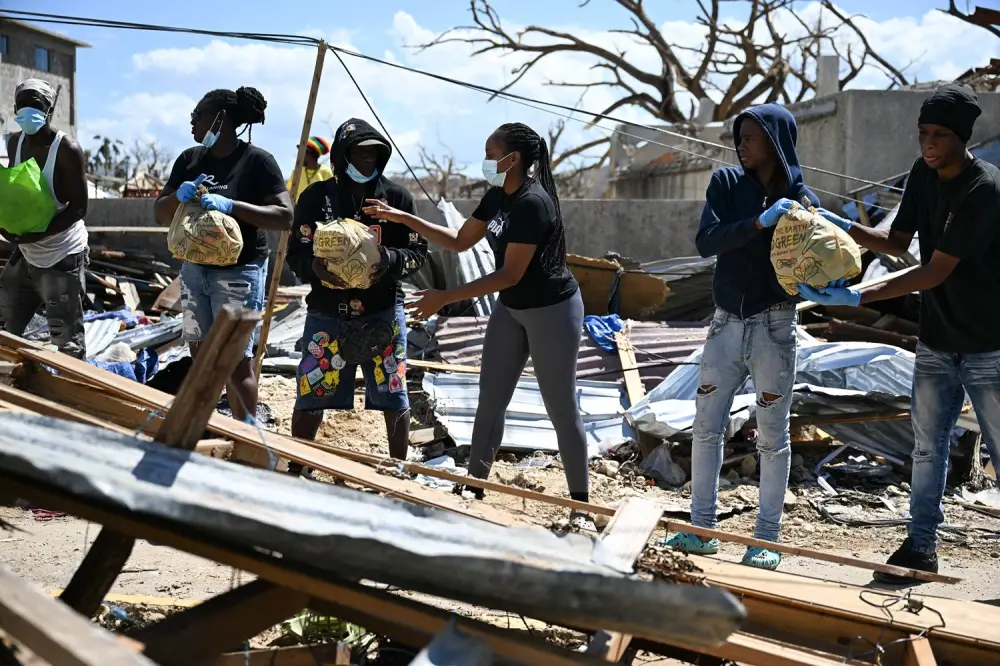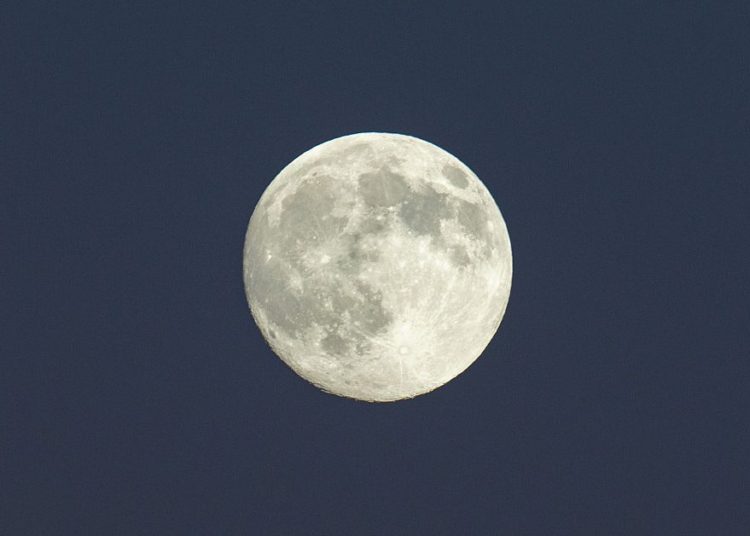How the United States responds to the devastation that Hurricane Melissa wreaked last week across the Caribbean, particularly in Jamaica, is shaping up to be a key test of the Trump administration’s ability to still provide essential international disaster relief after this year’s controversial dismantlement of the country’s humanitarian response infrastructure.
Hurricane Melissa was a Category 5 storm—and one of the most powerful hurricanes ever recorded in the Atlantic Ocean—when it hit Jamaica on Oct. 28 and a Category 4 when it moved on to Cuba. Melissa’s death toll is slowly ticking up as rescue crews work to reach rural and less accessible areas in the Caribbean. As of Nov. 1, there have been 28 fatalities in Jamaica and at least 30 in Haiti.
“Nothing could prepare you for the level of devastation that we’ve seen—whole communities inundated, churches destroyed completely, people on the streets, power lines down. It’s really shocking, and it’s really only the beginning,” said Brian Bogart, the World Food Program’s Caribbean country director, in a video post shared from Black River, a coastal town in Jamaica.
In comparison to other major natural disasters earlier this year in Afghanistan and Myanmar, the Trump administration has announced a more significant humanitarian response to Hurricane Melissa. U.S. efforts include assigning helicopters from U.S. Southern Command and providing critical airlift support to transport disaster response personnel.
The U.S. State Department, which inherited the remnants of the now-shuttered U.S. Agency for International Development’s (USAID) humanitarian response capabilities, said it has dispatched what it is calling a Disaster Assistance Response Team (DART) to assess the needs of affected communities in Jamaica, Cuba, Haiti, and the Bahamas, along with two urban search-and-rescue teams provided by the fire departments of Fairfax County, Virginia, and Los Angeles County, California.
“The U.S. engagement has been steady and coordinated, even as the broader architecture of U.S. humanitarian assistance evolves. USAID’s traditional coordination role has shifted, but the continued presence of the DART demonstrates that the operational machinery for disaster response remains in place,” said Stacy-ann Robinson, a former member of the Jamaican Foreign Service and now an associate professor of environmental sciences at Emory University.
“The key question is whether that capacity can be sustained over time with fewer personnel and resources,” she added.
Several factors have positioned Jamaica to be a key test case for how well the United States’ shrunken humanitarian response infrastructure performs. The first is that it is so close to the United States. That makes airlifting personnel and supplies from nearby Miami much easier than, for example, Myanmar.
The other major factor working in Jamaica’s favor is that its government is friendly with the Trump administration, in contrast to most of its Caribbean neighbors.
“The U.S. sees Jamaica as one of its allies in the region. Most of the other Caribbean governments are much more leftist in their rhetoric,” said Diana Thorburn, director of research at the Caribbean Policy Research Institute. “Jamaica is positioned right now, whether politically or organically, as being one of this U.S. administration’s well-wishers among the other Caribbean islands.”
The scale of damage that Hurricane Melissa inflicted on Cuba is less clear given the country’s tight information control and its historically poor relationship with the United States. Still, U.S. Secretary of State Marco Rubio, who is Cuban American and a longtime antagonist of the Castro regime, said Washington was prepared to provide humanitarian aid to the Cuban people.
“In the wake of Hurricane Melissa’s devastation of eastern Cuba, the Trump Administration stands with the brave Cuban people who continue to struggle to meet basic needs,” Rubio posted on X. “The United States is prepared to provide immediate humanitarian assistance directly and via local partners who can most effectively deliver it to those in need.”
That aid is taking the form of a $3 million donation to the Catholic Church, according to a social media post from the State Department’s Western Hemisphere Affairs Bureau. The offer was confirmed by the Conference of Catholic Bishops of Cuba to the Miami Herald.
Yet even as the Trump administration is demonstrably making more of an effort with its response to Hurricane Melissa than to other international disasters, it is doing so with a much smaller response capability. For example, USAID’s Bureau of Humanitarian Assistance (BHA) used to include several hundred people, who were focused on hurricanes and other natural disasters in Asia, Latin America, and the Caribbean, according to Marcia Wong, who was the deputy assistant administrator of the bureau during the Biden administration.
Most of USAID’s approximately 13,000 workforce were laid off when Trump unilaterally shuttered the agency this year. But some 60 staff members from the BHA were transferred to the State Department’s recently formed international disaster response office as part of Rubio’s controversial reorganization of the department, according to Wong. Another 40 to50 people from the BHA were sent to the department’s global food security office and around 15 more were redistributed around the department’s regional bureaus, she said.
Through “good diplomacy,” former BHA officials were able to convince the incoming Trump administration that it should keep the bureau’s regional disaster contracts, Wong said, adding that she understood that some 20 people across Jamaica, Haiti, and the Bahamas have been activated from the roster. “It’s a surge roster of local experts in these countries. When something happens you want them there. Luckily, because of this, they managed to persuade the incoming political leadership that was looking more narrowly that this was a readiness tool. … You tap this tool, and it will save lives.”
One thing that has notably been absent from the State Department’s communications about its Hurricane Melissa response are announcements of large monetary contributions (apart from the relatively small sum offered to the Catholic Church in Cuba).
That is likely because the Trump administration terminated more than $1 billion in earmarked humanitarian funding this year. The eliminated funding includes nearly $500 billion in humanitarian aid overseen by the former USAID, another $800 million dedicated to the State Department’s migration and refugee assistance account, and more than $400 million from a State Department account that makes voluntary contributions to several of the United Nations’ humanitarian offices such as UNICEF and the U.N. Office for the Coordination of Humanitarian Affairs.
Those U.S. foreign aid cuts have had a devastating impact on the professional humanitarian field, according to Jeremy Konyndyk, who led USAID’s response to the COVID-19 pandemic during the Biden administration. He estimated that most of the big U.S. nongovernmental organization (NGO) partners have lost between one-third and one-half of their workforce. Remaining staff have been mostly focused on responding to complex emergency crises such as the ones in Syria and Sudan.
“I wonder how much surge capacity there will actually be in the NGO sector because they have cut their staff to the bone,” said Konyndyk, who now leads Refugees International. He added that in the wake of Trump’s cuts, he is worried about how the international community will respond to massive disasters on the level of the 2010 earthquake in Haiti or 2013’s Typhoon Haiyan in the Philippines. “Whereas in a disaster response in the past, you have NGOs that could pull people from other country programs … they’ve lost that because the funding has gone away, so I think the NGO response will be much weaker than it would otherwise. And on the U.N. side, it’s a similar story.”
The post In Hurricane Melissa’s Wake, Trump’s Foreign Aid Cuts Face Critical Moment appeared first on Foreign Policy.




